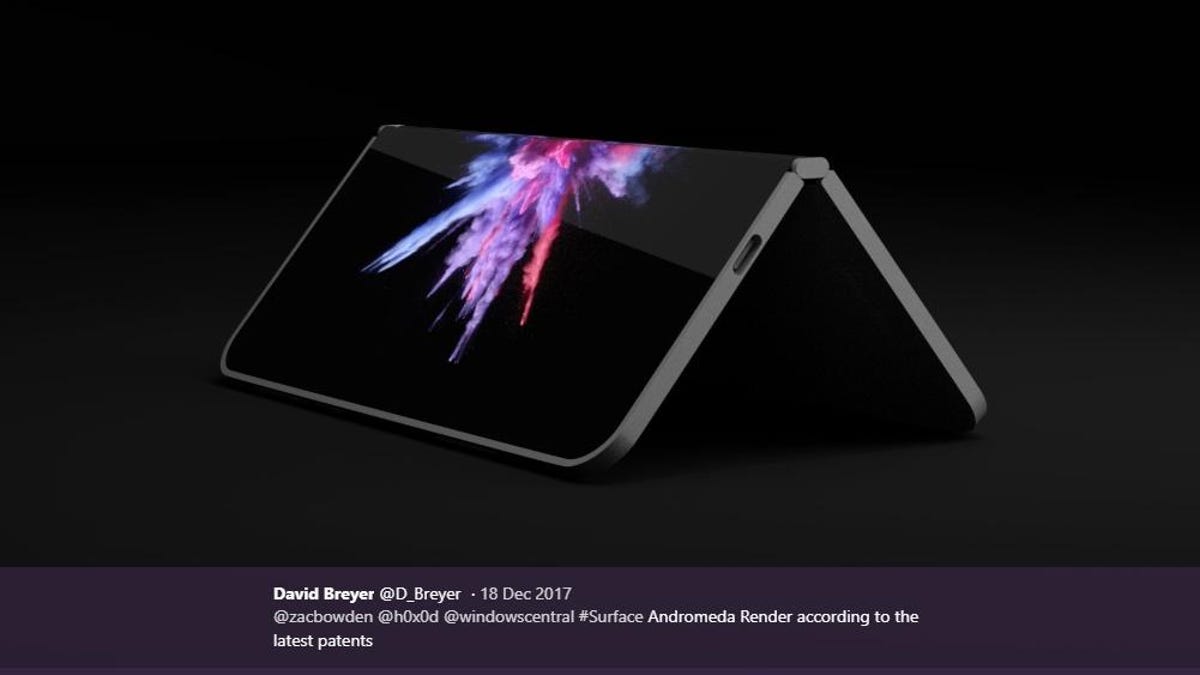Sources say Microsoft's Surface Andromeda handheld isn't dead yet
Good, because I want to play with one really badly.
We'd thought Microsoft's secret folding dual-screen Surface handheld -- code-named Andromeda -- might surprise us this year. Then, we abruptly heard it might not arrive at all.
Now, Thurott.com's Brad Sams, who has decent track record for Microsoft leaks, claims the project isn't dead yet: "What Microsoft is actually doing is sending it back to the labs to be significantly reworked."
Sams continues:
Multiple sources have told me that Microsoft plans to overhaul the software and hardware before releasing the device. At this time, the software and hardware do not create a compelling solution that would move the needle for Microsoft and, more importantly, the Surface brand, which is why when it came to the 'go, no go' decision earlier this year, it was not given the green light.
According to his sources, the next window of opportunity for Andromeda might be late 2019, but Microsoft won't ship the product until or unless it believes it'll be "a guaranteed success."
Mary Jo Foley, longtime Microsoft reporter for our sister site ZDNet, has pointed out that Microsoft doesn't seem to just be building a handheld, but an array of updates to Windows to make dual-screen devices work better. So whatever it does with Andromeda may impact other PC makers' plans to introduce dual-screen laptops and tablets.
Microsoft didn't immediately respond to a request for comment.


